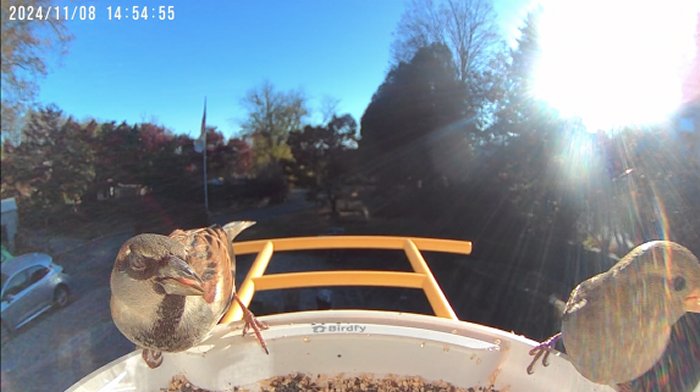The Providential Care of God

I have written about the phenomenon of the many times when I read my daily Bible chapters and later find other authors referring to something I read that same day. This happened again yesterday.
In my morning Bible reading I read John 19 in which Jesus is being abused by Pilate: scourging, crown of thorns, beating, mocking. “He was wounded for our transgressions, He was bruised for our iniquities.” (Isaiah 53:5) During the course of this mistreatment, Pilate hears from the Jews that, according to their law, Jesus ought to die because He made Himself the Son of God. Hearing this, Pilate gets scared and ask Jesus where He is from. Jesus doesn’t answer him.
Pilate, being a godless haughty man, said to Jesus, “Speakest Thou not unto me? Knowest Thou not that I have power to crucify Thee, and have power to release Thee?”
Jesus’ response to Pilate is an amazing statement of godly confidence: “Thou couldest have no power at all over Me, except it were given thee from above.” These words cause me to pause and reflect whenever I read them.
Late in the day, I read J. C. Ryle’s “Expository Thoughts on the Gospel of Matthew.” I read the section on Matthew 10:24 – 33. The context of this chapter is that of Jesus sending forth His twelve apostles to preach, heal the sick, cleanse the lepers, raise the dead, cast out devils. He sends them forth to do good things, but He warns them that they will be mistreated by the world – just as it mistreats and maligns Him. But He gives them much encouragement to trust their heavenly Father’s care through it all.
Matthew 10:28 – 31:
Fear not them which kill the body, but are not able to kill the soul: but rather fear Him which is able to destroy both soul and body in hell.
Are not two sparrows sold for a farthing? and one of them shall not fall on the ground without your Father.
But the very hairs of your head are all numbered.
Fear ye not therefore, ye are of more value than many sparrows.
On this, Ryle says:
Those who try to do good must keep before their minds the providential care of God over them. Nothing can happen in this world without His permission: there is no such thing in reality as chance, accident, or luck. “The very hairs of their heads are all numbered.” The path of duty may sometimes lead them into great danger; health and life may seem to be imperiled, if they go forward: let them take courage in the thought that all around them is in God’s hand. Their bodies, their souls, their characters are all in His safe keeping: no disease can seize them, no hand can hurt them, unless He allows. They may say boldly to every fearful thing they meet with, “Thou couldest have no power at all against Me, except it were given thee from above.”
The verse from John again impressed me in the context in which Ryle placed it: for “those who try to do good.” Was not Jesus set upon the course of doing the ultimate good thing as He stood before Pilate? He was not just “trying” to do good. He was actually doing THE GOOD THING that NOTHING in all creation could have prevented. He was drinking the cup which His Father gave Him to win our salvation. NOTHING could have prevented Him, not even the Roman ruler Pilate, who had all the authority of the Roman empire behind him. He indeed had the power to allow Jesus to go free or to crucify Him. But the Father held even that in His own hand. Pilate could do NOTHING against Christ without permission from above.
The same divine care surrounds all those who are Christ’s. Every hair on our heads is numbered by God. That’s how intimate His care of us is. The world has NO power over us except for that which our Father allows. And all that He allows is for our good and His glory.
More words from the Apostle John:
1 John 4:4b: “Greater is He that is in you, than he that is in the world.”
1 John 5:4, 5: “For whatsoever is born of God overcometh the world: and this is the victory that overcometh the world, even our faith. Who is he that overcometh the world, but he that believeth that Jesus is the Son of God?”
And that brings us back to Jesus standing before the frightened Pontius Pilate: the Son of God doing a good work, overcoming the world, receiving the world’s hatred, while at the same time having full confidence in His Father’s care.
One last Scripture passage that came to my mind:
Hebrews 12:1 – 3:
Wherefore seeing we also are compassed about with so great a cloud of witnesses, let us lay aside every weight, and the sin which doth so easily beset us, and let us run with patience the race that is set before us,
Looking unto Jesus the author and finisher of our faith; who for the joy that was set before Him endured the cross, despising the shame, and is set down at the right hand of the throne of God.
For consider Him that endured such contradiction of sinners against Himself, lest ye be wearied and faint in your minds.”
